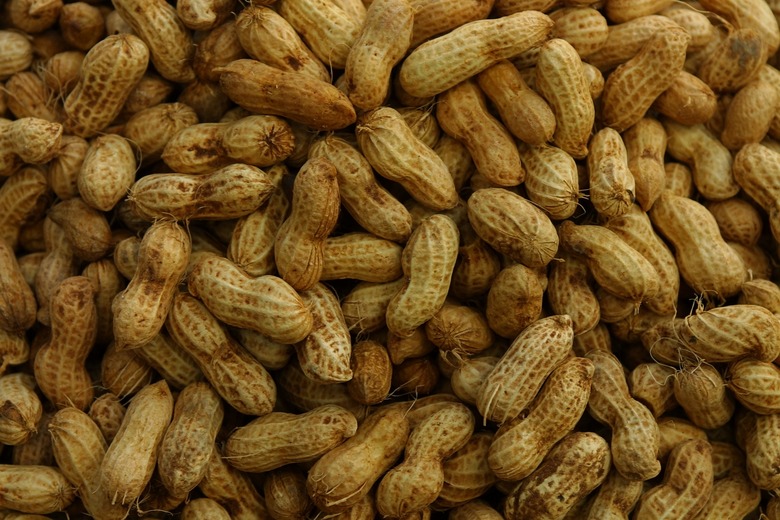Can You Fertilize With Peanut Shells?
Plants need a delicate balance of nutrients in the soil to thrive. When a soil is deficient in any one of the nutrients, soil amending is necessary. Organic materials, or compost, added to soil before planting gives the soil the boost in nutrients plants depend upon to grow. Fertilizers added later help maintain the nutrients as the plants use them. Various organic fertilizers enhance the soil, including manure, blood meal and wood ash. Other organic materials, such as peanut shells, have few beneficial minerals plants can absorb and are best use as a protective covering.
Nutrient Content
Plants use a combination of mineral and non-mineral nutrients. The mineral nutrients include nitrogen, phosphorus and potassium; non-mineral nutrients include oxygen, hydrogen and carbon. The non-mineral nutrients are found in the air and water, whereas mineral nutrients are obtained through fertilizers and naturally occurring matter in the soil. While the peanuts themselves, as part of the legume family, are nitrogen-rich, the peanut shells contain very little nitrogen. According to the North Carolina State University Cooperative Extension, peanut shells contain only 1.2 percent nitrogen. The levels of potassium and phosphorus are lower at .8 and .5 percents, respectively.
Compost
Composting consists of various decayed organic materials that consist of a balance of carbon and nitrogen. Microorganisms feed on the decaying material, which in turn releases nutrients into the soil. While there are many organic materials that decompose, not all contain the minerals needed to produce beneficial compost for your garden. Peanuts shells contain carbon. It would be beneficial to include peanut shells in addition to nitrogen-rich organic materials in your compost pile.
Mulch
Much protects plant roots from damage extreme hot or cold weather causes. In addition, it helps retain water essential for a plant's overall health. Peanut shells, or hulls, have a hard texture similar to wood chips. The shells take a long time to decompose, which makes them useful as a protective layer, as mulch, and not as a fertilizer, which needs to decompose faster to benefit plant health.
Other Considerations
Peanut shells are common carriers of bacteria and fungi that negatively affect plant growth, in particular, Sclerotium rotfsii or white mold. B. Dean McGraw, extension horticulturist with Texas A&M University, cautions against using peanut hulls as mulch in warm, southern climates as the hulls may have nematode, or parasitic worm, infestations, which can harm plants.
